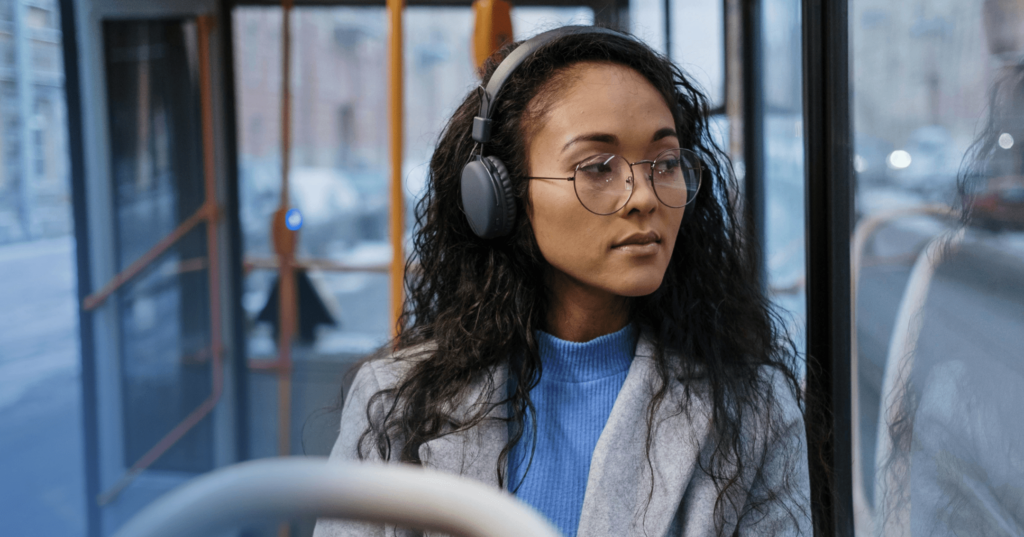Autistic people can easily become overstimulated by everyday things, like loud noises or certain smells.
Sensory processing disorders are more common in autistic people, which may be why it’s generally easier for them to become overstimulated.
Autistic people can be hypersensitive or hyposensitive, depending on the stimuli and situation.
Most of us know what it’s like to feel overstimulated from time to time. Feelings of sensory overwhelm can be triggered by loud noises, certain smells, bright lights, or any other sensory overload. Some of us may feel anxious or unable to focus or even have the urge to escape.
For many autistic people, overstimulation can be a defining feature of their lives. While not all autistic people experience this sensory overload, it’s very common. In fact, around 69% to 90% of autistic people deal with sensory sensitivity.
What does overstimulation feel like for an autistic person?
It may not be immediately obvious when an autistic person feels overstimulated. Some people may actually be hyposensitive, or undersensitive, depending on who or what they encounter.
For example, someone may be unable to recognize intense smells, including their own body odor. Or they may seek out crowded or noisy environments because they’re undersensitive to noise. On the other hand, an oversensitivity to touch could mean that receiving a hug could trigger physical pain or discomfort.
But the experience of overstimulation can be complex. Depending on what’s happening, any one of an autistic person’s senses can be over- or undersensitive.
Some other signs of over- or understimulation for autistic people can look like:
Experiencing sleep challenges due to oversensitivity to light
Having difficulty hearing sounds or only hearing from one ear or partially
Being able to hear conversations from far away
Sensory seeking by licking objects to understand them
Being unable to tune out sounds, like background noise
Avoiding and/or disliking people with intense smells, like strong perfumes or colognes
Eating inedible items like dirt, grass, or pebbles
Finding some textures uncomfortable and therefore having limited diet or only wearing certain clothes
Enjoying extremely spicy food
Having difficulty washing or combing their hair because their scalp is overly sensitive
Struggling with fine-motor skills, like trouble with tying their shoes
Having a high pain threshold
Dig deeper:
The care you need, when you need it
Learn how Rula can support your mental health journey
What causes people with autism to be overstimulated?
What causes overstimulation in autism? The answer could lie partly in a gene mutation called R415C, which is associated with autism. A study found that this mutation causes an overstimulation of brain cells.
This overstimulation causes more “noise,” or electrical activity, in the brain. This may be the reason your autistic friend wears headphones to block out noise from the outside world, for example.
Generally, it’s also harder for many autistic people to process sensory information. In fact, sensory processing disorders are more common in people with autism spectrum disorder. This neurological condition impacts how people process different senses.
Slower processing speeds can also play a role in why autistic people become overstimulated.
Dig deeper:
How autistic people can calm down when overstimulated
Catching yourself when you’re overstimulated and then working to calm down can be a tall order for anyone, especially people living with autism. But learning tools that work for you to reduce overstimulation can help you move through the world with more ease.
Some ways to cope with overstimulation include:
Soothing yourself with textures: If a certain texture is soothing for you, bring an object with that texture with you so you can touch it when overstimulation strikes.
Bringing tools to reduce noise: Bring helpful aids, like headphones or earplugs, so you can block out noises that overwhelm you.
Trying a weighted blanket: Use the deep pressure provided by a weighted blanket to help center yourself and allow your muscles to reduce tension.
Listening to calming music: If certain types of music are calming to you, take some time to listen to music when overstimulation surfaces.
Leaving a situation if it’s too overstimulating: If it’s possible to leave the situation, remember that taking care of yourself is important and it’s OK to leave if you’re feeling overwhelmed.
Building in structured routines: Structured routines can be very comforting for many people with autism. Focusing on predictability can reduce overstimulation as a preventative or in-the-moment coping tool.
Therapy can help autistic people cope with hypersensitivity or hyposensitivity. Both occupational therapy and cognitive behavioral therapy (CBT) are widely recommended. Occupational therapy can help autistic adults learn how to better self-regulate when they feel overstimulated. Therapy can also introduce mindfulness so autistic people have coping strategies they can use when too much is going on.
My clients have spoken to how empowered they feel when they’re able to identify the early warning signs of overstimulation. Being able to see overstimulation coming means they can take action to reduce the stimuli or calm their bodies before reaching the top of their threshold. When working to identify these signs, we focus on slowing down in moments of overstimulation to take note of what they feel and notice in their bodies and minds — and these become the early warning signs.

Elise Miller, MA, LPC
Clinical reviewer
Find care with Rula
Overstimulation caused by autism can lead to distress and frustration and make daily tasks more difficult. But help is available.
With Rula, you’ll have access to both therapists and psychiatrists who can empathize with your overstimulation and help it impact you less. With Rula’s extensive network of over 15,000 providers, you can book an appointment as soon as tomorrow.
Rula's editorial process
Rula's editorial team is on a mission to make science-backed mental health insights accessible and practical for every person seeking to better understand or improve mental wellness.
Members of Rula’s clinical leadership team and other expert providers contribute to all published content, offering guidance on themes and insights based on their firsthand experience in the field. Every piece of content is thoroughly reviewed by a clinician before publishing.




